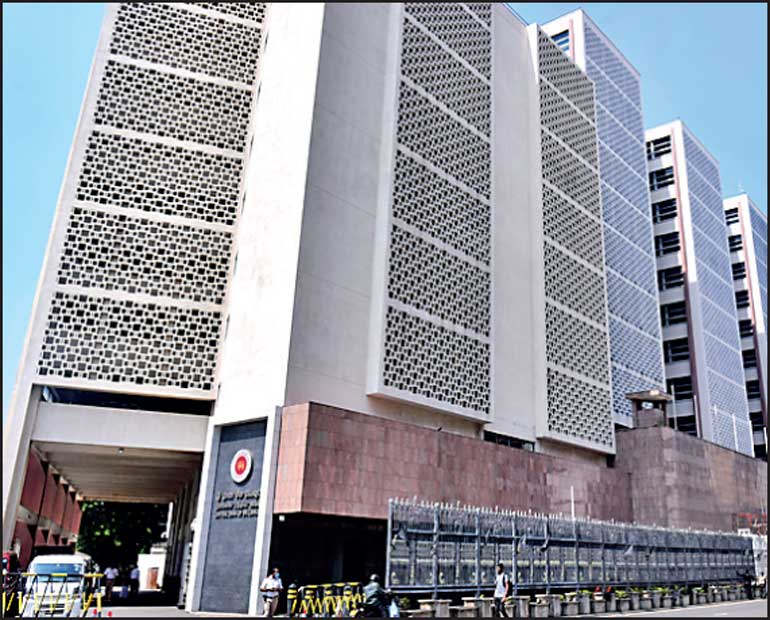Saturday Feb 21, 2026
Saturday Feb 21, 2026
Thursday, 10 August 2023 00:40 - - {{hitsCtrl.values.hits}}

The Central Bank yesterday surprised markets by announcing a key measure to release Rs. 200 billion in liquidity thereby further easing interest rates.
It said the Monetary Board of the CBSL at its meeting held on 8 August 2023, decided to reduce the Statutory Reserve Ratio (SRR) applicable on all rupee deposit liabilities of Licensed Commercial Banks (LCBs) by 200 basis points, from 4% to 2%, with effect from the reserve maintenance period commencing 16 August 2023.
“This decision was taken with the view to inject liquidity to the banking system and further reduce market liquidity deficit on a permanent basis, in line with the current monetary policy stance of the Central Bank,” it said in a statement.
CBSL said this reduction in the SRR is expected to release around Rs.200 billion of liquidity to the domestic money market, which would enable a further downward adjustment in the market lending rates as a result of the reduction in cost of funds of LCBs, thereby supporting the expansion in credit flows to the economy.
While LCBs are expected to pass the benefit of the SRR reduction to their customers without delay, the Central Bank will continue to monitor market developments, and take appropriate administrative measures, if required, to ensure faster reduction of market lending rates,” the statement added.
SRR was at 2% briefly between June 2020 and August 2021. Cumulative market deficit in LKR as of 8 August was Rs. 250 billion.
After multiple months of decline credit to the private sector in June saw a gain of Rs. 74 billion boosting the cumulative figure to Rs. 7.09 trillion. However in June last year the cumulative figure stood at Rs. 7.74 trillion.
Bartleet Religare Securities said: “We believe market lending rates will continue to trend downward, which bodes well for economic growth and private-sector credit growth. On the flip side, this may create an increase in overall demand, adding pressure on price levels and exchange rates.”